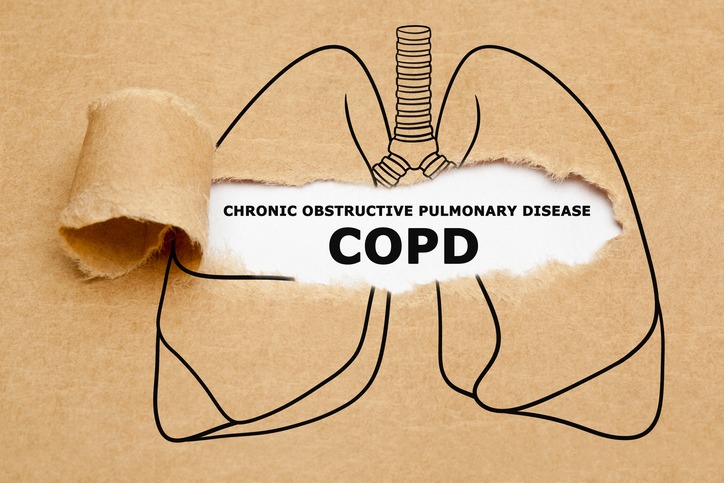Caring for a loved one with COPD can be overwhelming, especially when the condition causes them to feel as if they can’t breathe. This sensation often leads to intense anxiety and panic attacks, which can, in turn, worsen COPD symptoms. To provide the best care, it’s crucial to understand COPD and recognize what triggers its symptoms.

Here are some common triggers and what to watch for:
Respiratory Infections
Infections like the flu, COVID-19, RSV, and pneumonia can aggravate COPD by increasing inflammation and mucus production. It’s essential to diligently protect against respiratory infections to manage COPD effectively.
Weather Changes
Cold weather, particularly as winter approaches, can irritate the airways and make breathing more difficult for those with COPD. Be mindful of temperature changes and take precautions to minimize exposure to cold air.
Medication Management
Improper use of medications, whether incorrect dosages or schedules, can lead to worsening COPD symptoms. Ensure that medications are taken precisely as prescribed.
Inhaler Use
Using an inhaler correctly requires strength and coordination to deliver medication effectively to the lungs. If using an inhaler is challenging, speak with a doctor about using a nebulizer as an alternative.
Coexisting Illnesses
Other health conditions, such as congestive heart failure or asthma, can complicate the treatment of COPD. Managing these conditions alongside COPD is crucial for overall health.
Exercise
Regular exercise, as recommended by a doctor, helps maintain lung function and respiratory strength. Lack of exercise can negatively impact COPD management.
Smoking
Smoking is a primary cause of COPD and significantly worsens its symptoms. Since COPD is a progressive disease, quitting smoking is essential to slow its progression.
Air Pollution
Outdoor air pollution, including smog, dust, and exhaust fumes, can aggravate COPD symptoms. Be cautious about air quality and limit exposure when pollution levels are high.
Indoor Airborne Irritants
Indoor irritants such as cleaning chemicals, dust, and fumes from cooking or heating can also worsen COPD symptoms. Ensure good ventilation and reduce the use of harmful chemicals indoors.
Allergens
Common allergens like mold, pet dander, and pollen can trigger COPD symptoms. Identifying and minimizing exposure to these allergens can help manage symptoms better.
Support from UpliftedCare
At UpliftedCare, our dedicated caregivers are specially trained in the management and treatment of COPD. We develop comprehensive management plans tailored to individual needs, focusing on controlling symptoms and reducing anxiety to improve the quality of life for those coping with COPD.
If you are caring for a loved one with COPD and feel overwhelmed or have questions, we are here to help. Seeking support is often the first step to achieving peace of mind and enhancing the quality of life. We hope this information has helped you understand what triggers COPD and what to watch for.
For more information on how UpliftedCare can assist you, please reach out to us.
Call 815.939.4141
More Time, More Memories: Our Care Helps Families Stay Together Longer.
Each year, over 100 of our patients benefit from early hospice care, extending their time with family and loved ones by six months or more.

